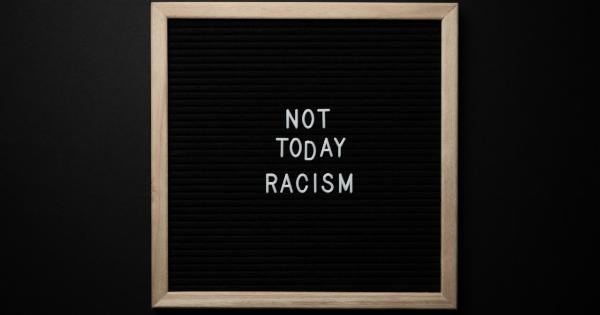Anxiety disorders are common mental health conditions that affect millions of people worldwide. These conditions are characterized by intense and excessive worrying, fear, and unease that can disrupt daily life.
Anxiety disorders can be challenging to identify and treat, causing many people to suffer in silence without knowing what’s wrong. If you experience any of the following symptoms, it’s essential to seek professional help to determine if you have an anxiety disorder.
1. Always Feeling On Edge
If you always feel on edge, restless, or agitated, even when there’s no real danger present, it could be a sign of an anxiety disorder.
You may find yourself worrying about anything and everything, from work-related stress to personal relationships.
2. Obsessively Worrying About Health
If you spend a lot of time thinking about your health, even when there’s no real reason to worry, you may be dealing with health anxiety.
You may find yourself constantly seeking reassurance from doctors, friends, and family members about your health.
3. Fear of Social Situations
If you’re afraid of social situations and tend to avoid them, you may have social anxiety disorder. You may be self-conscious and worry about being judged or scrutinized by others.
4. Panic Attacks
Panic attacks can be a sign of an anxiety disorder. If you experience sudden, intense feelings of fear or terror that come out of nowhere, it could be a panic attack. Symptoms may include shortness of breath, chest pain, racing heartbeat, and dizziness.
5. Difficulty Sleeping
If you have trouble sleeping, you may have an anxiety disorder. Anxiety can cause racing thoughts and worries that can keep you up at night, making it hard to fall asleep or stay asleep.
6. Persistent Headaches
People with anxiety disorders often experience persistent headaches. While headaches can be caused by many different things, anxiety-related headaches are usually accompanied by muscle tension and can be relieved by relaxation techniques.
7. Digestive Issues
Stress and anxiety can cause a range of digestive problems, including acid reflux, bloating, and stomach pain. If you’re experiencing these symptoms frequently, it could be a sign of an anxiety disorder.
8. Feeling Overwhelmed
If you feel overwhelmed by everyday tasks and responsibilities, it could be a sign of an anxiety disorder. You may feel like you can’t keep up with everything you need to do, leading to stress and worry.
9. Irritability
Feeling irritable and grumpy can be common in people with anxiety disorders. You may snap at others easily, feel frustrated, and find it hard to focus on daily tasks.
10. Muscle Tension
People with anxiety disorders often carry tension in their muscles, causing stiffness and soreness. You may experience tense muscles in your neck, shoulders, and back as a result of stress and worry.
11. Procrastination
Procrastination can be a sign of an anxiety disorder. You may put off tasks because you feel overwhelmed or worried about doing them perfectly.
12. Avoidance Behaviors
If you avoid situations, people, or tasks that make you anxious, it could be a sign of an anxiety disorder. Avoidance behaviors can make it challenging to function in daily life and can lead to isolation and loneliness.
13. Excessive Self-Consciousness
If you’re excessively self-conscious and worried about how you appear to others, it could be a sign of an anxiety disorder. You may feel like everyone is watching you and judging you constantly.
14. Experiencing Intrusive Thoughts
Intrusive thoughts are unwanted thoughts that can be disturbing or distressing. If you experience intrusive thoughts frequently, it could be a sign of an anxiety disorder.
15. Depression
People with anxiety disorders are often also diagnosed with depression. If you experience feelings of sadness, hopelessness, and low energy in addition to anxiety symptoms, it could be a sign of both conditions.
16. Overthinking
People with anxiety disorders often have trouble getting out of their heads and tend to overthink everything. This can cause worry, distress, and difficulty making decisions.
17. Difficulty Concentrating
Anxiety can make it hard to focus on daily tasks and maintain an adequate level of concentration. If you’re experiencing difficulty concentrating, it could be a sign of an anxiety disorder.
18. Uncontrollable Shaking
Uncontrollable shaking or trembling is common in people with anxiety disorders. It can be a mild tremor or more severe shaking, depending on the person.
19. Sweating Excessively
If you sweat excessively, even when you aren’t doing anything that would normally cause you to sweat, it could be a sign of an anxiety disorder. Sweating can be a physical response to stress and worry.
20. Feeling Fatigued
Anxiety can cause fatigue and low energy levels. If you’re feeling tired all the time, it could be a sign of an anxiety disorder.
21. Racing Heartbeat
People with anxiety disorders often experience a racing heartbeat or palpitations. It can be a physical response to stress and worry.
22. Difficulty Breathing
Anxiety can cause difficulty breathing or shortness of breath. You may feel like you can’t catch your breath, even when there’s no physical reason why.
23. Avoiding Eye Contact
If you avoid eye contact with others, it could be a sign of social anxiety disorder. You may feel uncomfortable having people look at you and worry about being judged or criticized.
24. Nightmares
If you have nightmares frequently, it could be a sign of an anxiety disorder. Anxiety can cause vivid, disturbing dreams that can interrupt sleep and cause distress.
25. Feeling Dizzy or Lightheaded
Dizziness or lightheadedness can be a physical symptom of anxiety. You may feel like you’re going to faint or lose your balance when you’re anxious.
26. Sensitivity to Sounds or Light
If you’re sensitive to sounds or light, it could be a sign of an anxiety disorder. Loud noises or bright lights can make you feel anxious and overwhelmed.
27. Racing Thoughts
People with anxiety disorders often experience racing thoughts that can be hard to control. You may feel like your mind is going a mile a minute and find it challenging to slow down your thoughts.
28. Twitching or Uncontrollable Movements
If you experience twitches or uncontrollable movements, it could be a sign of an anxiety disorder. It can be a physical response to stress and worry.
29. Dry Mouth
Stress and anxiety can cause a dry mouth, making it hard to talk or swallow. If you’re experiencing dry mouth frequently, it could be a sign of an anxiety disorder.
30. Feeling Like Something Bad is Going to Happen
If you often feel like something bad is going to happen, even when there’s no evidence to support it, it could be a sign of an anxiety disorder.
You may worry excessively about events in the future and feel like you can’t escape negative thoughts.
Conclusion
Anxiety disorders can be challenging to deal with and can impact your quality of life. If you’re experiencing any of the symptoms mentioned above, it’s essential to seek professional help to determine if you have an anxiety disorder.
Treatment options can include therapy, medication, and lifestyle changes to manage symptoms effectively.




























